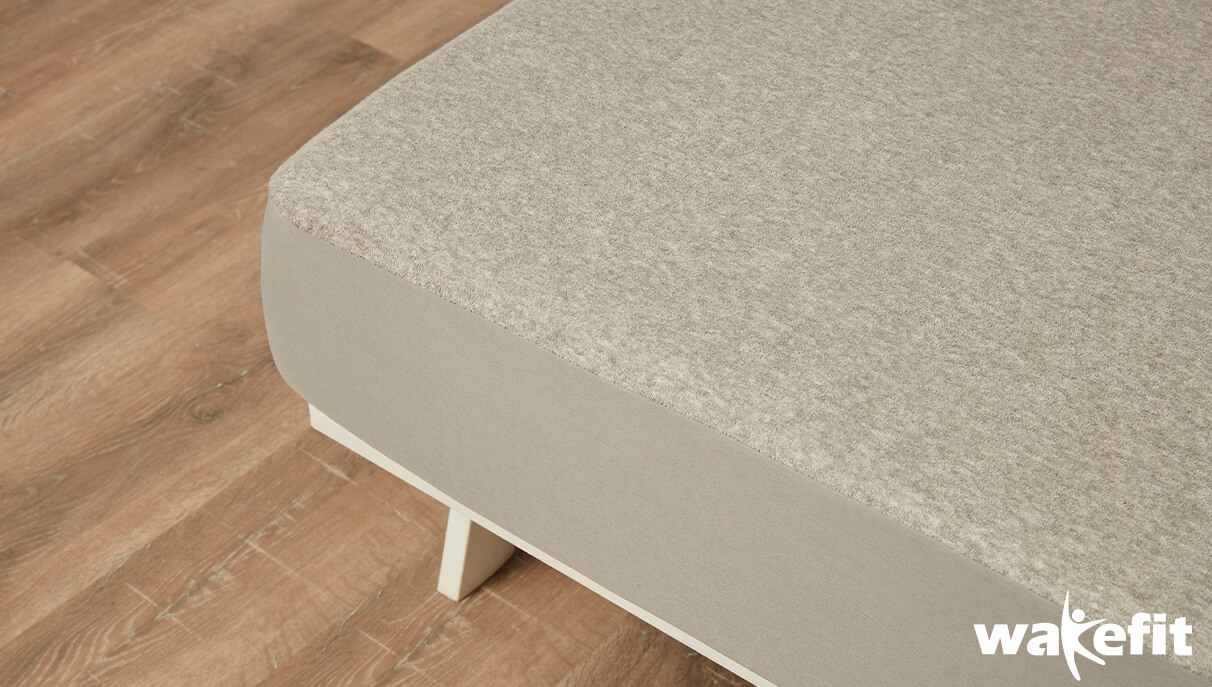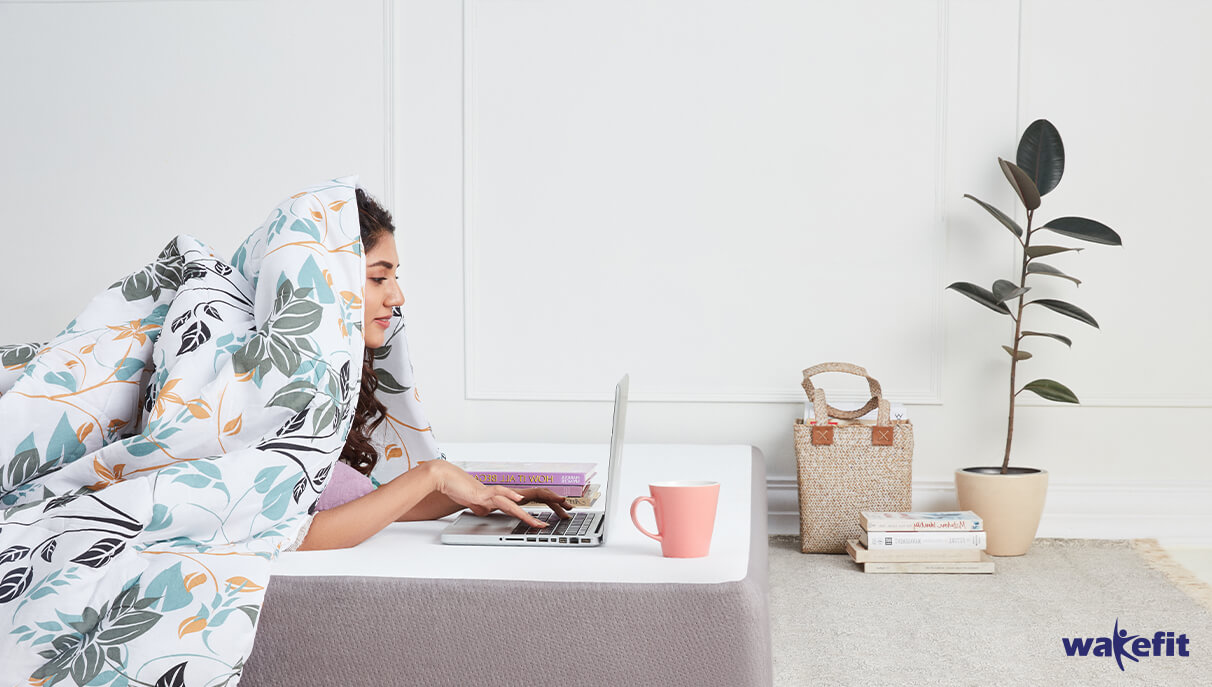A power nap is how long? Just 10 to 20 minutes of rest can work wonders for your energy levels. But it’s not just about shutting your eyes. The right mattress and pillows play a huge role in making that short nap feel as rejuvenating as hours of sleep.
A supportive pillow keeps your neck and spine aligned, so you wake up feeling refreshed, not sore. Pair that with the right mattress, and you’ve got the perfect setup for a quick nap that recharges both your body and mind.
Now that you know the importance of the right nap setup, let’s dive into how the combination of mattress and pillows can make your power nap more effective.
What Is a Power Nap and How Long Should It Be?
A power nap is a brief sleep session that offers a quick boost to your energy, mood, and mental alertness. Unlike a full night’s sleep, which may take hours to complete its sleep cycle, a power nap is specifically designed to be short, typically lasting between 10 and 30 minutes. It’s a great way to reset during the day, especially if you’re feeling fatigued or mentally drained, without disrupting your night-time sleep schedule.
But here’s the question on many minds: a power nap is how long? Well, the duration of a power nap is key to unlocking its benefits. The ideal nap length depends on the stage of sleep you want to enter, but research suggests that 10 to 20 minutes is the good power nap length for most people.
A power nap that lasts 10 minutes allows you to enter the lighter stages of sleep, helping to boost energy and alertness without leaving you feeling groggy. This short nap is enough to refresh your mind and improve cognitive function, enhancing your focus and mood for the rest of the day.
If you go a bit longer, up to 30 minutes, you’ll have time to reach deeper sleep stages, which can also help with memory consolidation and creativity. However, naps lasting more than 30 minutes may cause you to enter deep sleep stages, which can result in sleep inertia—a groggy, disoriented feeling that can last for a while after waking up.
For those looking to reap the full benefits of a power nap, the ideal duration of a power nap is typically between 10 and 20 minutes. This length is short enough to avoid the deeper stages of sleep while still providing that essential boost of energy and focus.
Taking naps that are too long can affect your nighttime sleep patterns, so it’s important to find a balance that works best for your body and schedule.
Health Benefits of Power Naps: Why You Should Nap Regularly

Power naps are more than just a quick break they offer health benefits of power naps that can improve your mood, focus, and physical well-being. A short nap can do wonders for your energy levels, mental clarity, and stress. It’s not just about feeling better; it’s about being better, both mentally and physically. Let’s dive into why you should incorporate them into your routine.
Boosting Mental Alertness
A power nap can help you regain mental clarity and focus. Just 10-20 minutes of rest can reset your mind, making you more alert. It clears brain fog and improves concentration for the rest of your day. After a power nap, you’ll feel more awake, productive, and ready to tackle tasks.
Key benefits:
- Restores focus and attention
- Reduces brain fog
- Helps you stay sharp throughout the day
Improving Memory and Cognitive Function
Need to improve your memory or learn something new? The benefit of power naps is that they help your brain consolidate and store memories. A quick nap makes a big difference in your retention and cognitive function.
Why it works:
- Enhances memory consolidation
- Boosts learning capacity
- Makes new information stick
Reducing Stress and Anxiety
Stress piling up? A power nap is your solution. Taking a quick nap helps lower cortisol levels, the stress hormone, leaving you more relaxed. It gives your mind a break from constant overthinking and helps you feel less anxious, more centered, and emotionally balanced.
Stress relief benefits:
- Reduces stress and anxiety
- Lowers tension and mental fatigue
- Leaves you feeling rejuvenated and calm
Enhancing Physical Performance
It’s not just your mind that benefits from a nap; your body does too. Power naps help reduce tiredness, improve physical endurance, and speed up recovery. A nap can keep you going longer and stronger.
Physical benefits:
- Restores physical energy
- Improves reaction time
- Speeds up recovery after exertion
How the Right Mattress Enhances Power Naps?

The mattress you sleep on plays a huge role in how well you nap. The right mattress power naps can make a huge difference in how quickly you fall asleep, the quality of your rest, and how refreshed you feel after waking up. A comfortable mattress that provides proper support and pressure relief is essential for an effective power nap time.
Supporting Spinal Alignment for Better Rest
A mattress that promotes proper spinal alignment ensures you get the best rest during short naps. When your spine is aligned, it helps reduce pressure on your body, allowing you to relax more deeply. Without the right mattress, your body can feel stiff and uncomfortable, making it difficult to get into a restful state.
- Good support reduces back and neck pain.
- Proper spinal alignment helps you rest in a relaxed position.
- Aligning your spine improves sleep quality and speed.
Pressure Relief and Comfort During Short Naps
The right mattress power naps should offer the right balance of firmness and softness. When the mattress relieves pressure points, it ensures comfort during short naps, allowing you to sleep more soundly without waking up with aches. A mattress that adapts to your body provides even weight distribution, which is key to getting the best out of your nap.
- Soft mattresses can relieve pressure on joints and muscles.
- A firmer mattress might provide better support for back sleepers.
- The right balance prevents discomfort from long or frequent naps.
Minimizing Tossing and Turning for Quality Sleep
The right mattress helps reduce tossing and turning during naps, which often disrupts sleep quality. When you are more comfortable, you spend less time shifting positions, allowing you to fall into a deeper sleep faster. This uninterrupted rest is key for making the most of your effective power nap time.
- The mattress should reduce movement to help you stay asleep.
- Comfort and support contribute to deeper, more restorative rest.
- Fewer interruptions lead to better overall nap quality.
Choosing the Right Mattress for Power Naps
When selecting a mattress for power naps, focusing on firmness, material, and support is key. The right mattress for power naps can make a big difference in how well you rest and how refreshed you feel when you wake up. Choosing a mattress that balances comfort with support helps you sleep deeply, so you can get the most out of your brief nap.
Key Mattress Features for Quick Sleep Recovery
For the best nap experience, consider these mattress features:
- Pressure relief: A mattress that reduces pressure points helps you relax quickly and sleep more soundly.
- Good support: Proper support for your spine prevents aches and discomfort, allowing for a restful nap.
- Motion isolation: A mattress with motion isolation means you won’t be disturbed by movement, ensuring an uninterrupted rest.
- Breathability: A breathable mattress keeps the temperature comfortable, so you won’t overheat during your nap.
- Durability: Durable materials maintain their shape and support, providing consistent comfort for your naps over time.
Memory Foam vs. Latex: Which is Better for Naps?
Both Memory Foam Mattress and Latex Foam Mattress have distinct advantages for power naps. Here’s how they compare:
| Feature | Memory Foam Mattress | Latex Foam Mattress |
| Support | Contours to your body, offering excellent support for pressure relief. | Provides firmer support with a bouncy feel, great for stability. |
| Comfort | Soft and cushioning, conforms to your body for added comfort. | Slightly firmer but still resilient and comfortable. |
| Heat Retention | Can retain heat, making it warmer during naps. | Naturally cooler and more breathable. |
| Durability | May lose shape over time, though it lasts for several years. | More durable, can last longer without sagging. |
| Motion Isolation | Great at isolating motion for uninterrupted rest. | Less motion isolation compared to memory foam. |
| Price | Generally more affordable. | Often more expensive due to natural materials. |
The Role of Firmness and Support in Short Naps
The firmness and support of your mattress play a big role in the quality of your short nap. The right firmness helps you maintain proper spinal alignment and makes sure you don’t sink too deeply or feel too stiff.
- Firmness: Medium-firm mattresses typically offer the best balance, providing comfort without sinking too much into the surface.
- Support: Proper support reduces the need for tossing and turning, helping you rest more deeply and feel rejuvenated.
Soft mattresses may feel comfortable at first, but if they lack support, you might wake up feeling stiff. On the other hand, overly firm mattresses can create pressure points. It’s important to find a balance that suits your body type and sleeping style.
FAQs
Q1: How long should a power nap be to feel refreshed?
A power nap typically lasts between 10 to 30 minutes. This duration allows you to rest without entering the deeper stages of sleep, making you feel refreshed and energised without waking up groggy. The duration of a power nap plays a key role in ensuring maximum benefits like improved alertness and mood.
Q2: Can power naps really improve my productivity?
Yes, power naps are proven to improve productivity. By taking a short break to recharge, you can boost concentration, memory, and overall mental performance. Studies show that even a 20-minute nap can help you feel more focused and alert, increasing your productivity for the rest of the day.
Q3: What type of mattress is best for quick naps?
The right mattress for power naps should offer good support and comfort. A medium-firm mattress, like Memory Foam Mattress or Latex Foam Mattress, is ideal for most people, as it provides a balance of comfort and spinal alignment. A mattress that helps you quickly relax and stay comfortable is essential for an effective nap.
Q4: Does the type of pillow affect nap quality?
Absolutely! A good pillow supports your neck and spine, helping you maintain proper alignment. The right pillow prevents discomfort, allowing you to nap peacefully without waking up with aches. Memory foam or adjustable pillows are great choices for supporting your neck during naps.
Q5: Is a 30-minute nap too long?
Not at all! A 30-minute nap falls within the sweet spot for a power nap. It’s long enough to help you recharge without entering deep sleep stages, which could leave you feeling groggy. A 30-minute nap provides a refreshing energy boost, enhancing alertness and mood.




No Comments